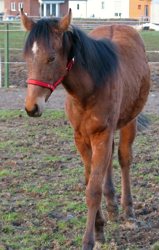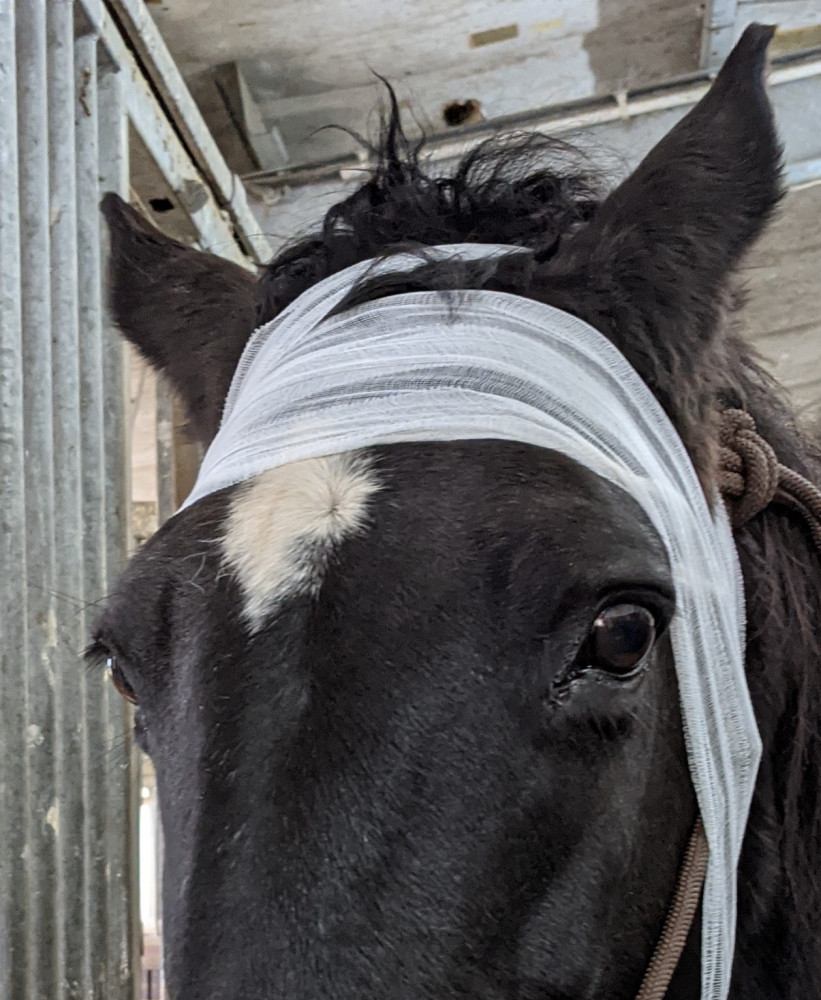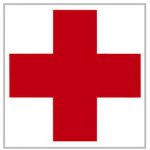Horses with Copper Deficiency
 Even if riders and horse owners always try to feed the best to their horses easily a horse has a deficiency of copper.
Even if riders and horse owners always try to feed the best to their horses easily a horse has a deficiency of copper.
Roughages and cereals often have a lack of this important nutrient if they grow on sandy, marshy or boggy soil.
How can riders notice a copper deficiency?
All soils around the area of the Rhine do not provide a lot of copper so that experts advise all horse owners

not to feed cereals which come from this part of Germany. The main problem of a copper deficiency is that horse owners as well as vets can hardly notice it. In the best case a horse gets a pigmentary abnormality around his eyes or even around his nostril. Some horses have some deficiency symptoms on their coat so that especially brown and black horses get lightened parts. Sometimes one can find rose colored parts on sensitive areas of the body like the nostril or between the hind legs and the tail.
Generally a horse does not show any outward symptoms for a copper deficiency but just behaves in a sluggish and tired way. This behavior has to be noticed by the rider or horse owner because it can give a hint to a lack of copper. A copper deficiency influences the liver, bones, musculature and skin and due to this it can easily become dangerous. In the worst case it can result in an osteoporosis or arthritis – in some cases vets even diagnosed fragile bones or deformations.
Function of copper in the organism
Copper has an important function in the organism of a horse because it stabilizes the health of the intestine. After a period of disease, like for example after an infestation by worms, vets often diagnose a lack of copper. Moreover copper is able to lower the concentration of histamine in the body and this especially is important for horses with allergies. Blood screenings show that horses with allergies often have a lack of copper.
How much copper does a horse need?
In general a healthy horse has a blood serum of about 16 µmol/l. This data already presents the minimum of copper in the blood. Due to this riders and horse owners need to take care of the daily ration: a horse with a weight of about 600 kg needs 60 to 90 mg of copper per day. Normally this is already realized by just feeding enough of hay and straw. Vets do not advise to feed additional chemical preparations: inorganic compounds of cupper often are not accepted by the organism so that they do not help.
Overdose of copper
Undoubtedly there are horse owners who want the best for their horse – and feed too much of copper. This has the same effect as a lack of copper what means that it does not improve the health of the horse. Due to this a disease of the kidney, a high blood pressure or other mental dysfunctions can be the results of such an overdose. Nevertheless a vet needs to make a blood screening so that he can make sure that these symptoms really refer to a copper deficiency and not to a lack of zinc or manganese.
Surf tips:
- Horses with Liver Disease – Origins and Treatment
- Horses with a Lack of Selenium
- The most important minerals for horses
- Horses with Laminitis – Origin and Therapy
—All statements without guarantee—


7 Comments
Comments are closed.